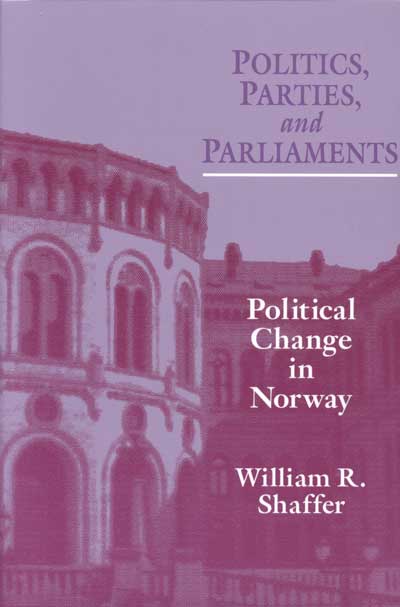Politics, Parties, and ParliamentsPolitical Change in NorwayWilliam R. ShafferParliaments and Legislatures |
 10/15/1998 272 pp. 6x9  $38.95 paper 978-0-8142-0788-8 Add paper to shopping cart Shopping Cart Instructions Review/Change Shopping Cart & Check-out | |||
|
|
William R. Shaffer has written a study of peaceful political change in a democracy, with special emphasis on the crucial role played by parliaments. Striking political change is occurring all over the world, most notably in nations where communism has collapsed. Although such wrenching dislocations must not be overlooked, it is crucial that we also examine change in stable democracies. The research reported in this book focuses upon Norway as a laboratory in which to study democratic political change. Norwegian consensus-style politics utilized a corporatist channel of policy making which had relegated Norway’s parliament, the Storting, to a secondary role of rubber-stamping policies developed by the government working together with relevant large interest groups. With the crumbling of political consensus in the 1980s, Shaffer argues, the Storting has assumed much greater importance. From the early 1980s through the mid-1990s, political conflict directed through the electoral channel—from voters to parties to parliamentary action—has been crucial to the fragmentation of the post–World War II consensus. Politics, Parties, and Parliaments presents empirical evidence of dramatic political change in both the style and substance of Norwegian politics and policy making. William R. Shaffer is an associate dean for academic affairs and a professor of political science at Purdue University. His many articles have appeared in such journals as Scandinavian Political Studies. | |||

